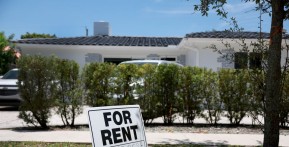An article from Trulia reported that buying a condo is different from a single-family dwelling. The article added that there is much more than condo association fees, shared walls, and elevators, what goes on before you reach the settlement table is also important. As cited in the article, Ryan Willis of Boxwood Realty said, "Purchasing a condo versus a single-family home definitely creates some different items to address." The article added that one difference is the inspection.
With that, the article explained on why condo inspection is different from any home inspection and also, gave six ways on how to inspect a new condo, which are as follows:
1. Roof checks
The article quoted Keith Thompson, broker of Berkshire Hathaway Home Services Carolinas Realty in Charlotte, North Carolina. Thompson said that the inspector should inspect the roofs because they only inspect the interior of a condo while the homeowners' association inspect the exterior of the building.
However, the article advised that inspector should not skip a roof check because the homeowner's association will repair it and will pay the damages. In a separate article from Trulia, that before updating the exterior part of the building, the new owner would be required to get an approval coming from the homeowner's association.
2. A radar for radon
Radon is an odorless, colorless gas that can cause serious health problems. Ryan Willis suggested that clients should inspect for radon gas. He added, "Some projects have concrete imported from other countries that emits radon gas. Because high-rises can be more 'sealed,' gas like radon is unable to escape, which can cause real health problems."
3. Minutes, please
The article suggested that minutes of the meeting is an important tool for understanding the condition of the building.
"The HOA minutes are your most important tool for understanding the workings and condition of the building. Make sure you get a full 12 months of meeting minutes. You don't want to buy in only to realize that there was a major building fail that might need a special assessment after you move in," as mentioned by Heather Witt Leikin, a real estate agent with Partners Trust Real Estate Brokerage and Acquisitions in Los Angeles.
In a separate article from Trulia, the financial statement from the last five years can also be seen in the minutes of meeting.
4. Knock on wood, tile, or drywall
Inspecting walls, ceilings, and floors is the most important when it comes to condo inspections. Bud Clark, a real estate agent with Willis Allen Real Estate in San Diego, advises that buyers should pay attention to flooring and soundproofing. Bud Clark added, "If the condo has hardwood flooring, have your home inspector ensure adequate soundproofing, as hardwood flooring is a known sound conductor, particularly from neighboring units above."
In addition, check for the water damage, as suggested by Lee Williams, a certified negotiation expert and real estate agent with Rutenberg, a real estate brokerage firm in New York City.
5. Seek out the HVAC
HVAC means Heating, Ventilating and Air Conditioning, although the unit may not be available in every condo. Ryan Willis advised the buyers to hire a licensed HVAC inspector. He added, "This seems like a no-brainer, but in condos sometimes the HVACs can be on the roof or require preapproval or access instructions from the HOA. It is best to get this information upfront so the inspection isn't delayed. The HVAC is typically the highest-priced item to repair."
6. Get a lift.
Usually, buildings with more than two stories have elevators. Lee Williams added that inspector should report if the elevator's building is in good working condition or not.













